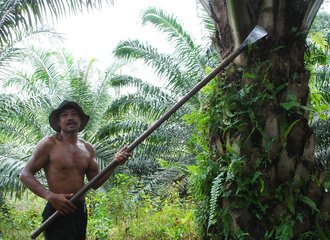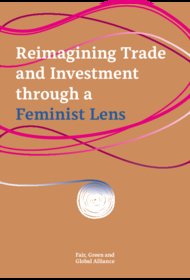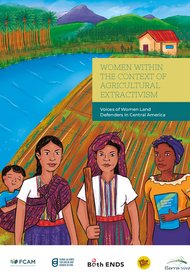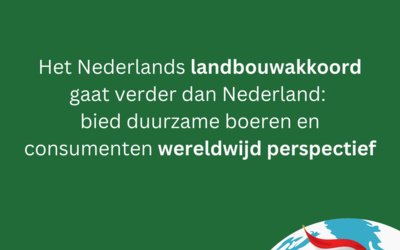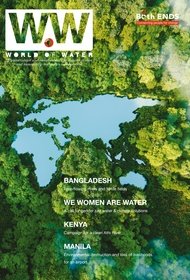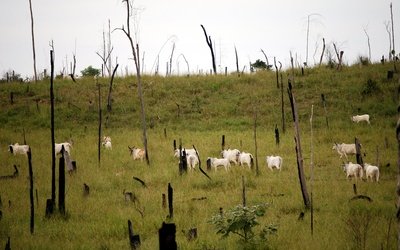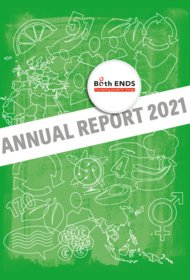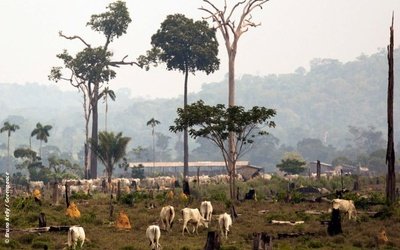Dutch Cabinet slowly taking steps towards sustainable palm oil and soy
On Wednesday November 5th, Dutch State Secretary for Infrastructure and Environment, Mansveld, and Minister for Agriculture, Dijksma, issued a letter to the Dutch House of Representatives. This letter was their reaction to the ‘Advice Sustainability Food Sector’, which was drafted at the request of the Cabinet by the Commission Sustainability Issues Biomass – or Commission Corbey in short. Paul Wolvekamp of Both ENDS is member of this commission and gave his opinion on the letter.
On what was the Commission supposed to give advice?
“The Cabinet requested the Commission to look into ways for the Netherlands to make the food sector as sustainable as possible, and to issue advice on this. Not only in the Netherlands, but also in countries where we get our resources and other food products from. The Commission has, amongst others, ordered the Landbouw Economisch Instituut (LEI) and the University of Wageningen to conduct several studies, and has done an analysis and several recommendations. We presented these to the Cabinet in a report some time ago. In part, the letter issued by Dijksma and Mansveld is a reaction to this. In December, a general meeting will be held in the House of Representatives, during which the letter will be discussed.”
What was mentioned in the letter?
“The Cabinet has accepted several concrete commendations; these will likely be incorporated in government policy. For example, our recommendation to learn from the currently existing sustainability criteria for biofuels was seen as interesting. And the importance of transparency in the food chain, which the Commission supports – so think of: where does it come from, where was it produced, what are the consequences and who is accountable – is also backed by the Cabinet. In line with the Commission’s recommendations, the Cabinet says it will tie in with initiatives that have already been developed by companies to make the food chain more transparent. And, ‘last but not least’, I think it is a good sign that the government will follow advice on sustainabilising consumption patterns.”
Was the letter also disappointing?
“A few years ago, the Dutch agro-food industries agreed on only using certified soy and palm oil after the year 2015. This is a difficult process that is being monitored by the industries themselves. Of course, ultimately the progress made will be validated by the CBS (Central Bureau for Statistics), but in the meantime, the Cabinet sits back and leaves everything to the market and NGOs. The production of soy and palm oil is cause for many social and environmental problems, and the Netherlands is a large consumer. Our government could and should do more to stimulate the use of certified soy – for instance via fiscal measures – and draft clear rules on the requirements of the production of these resources. Businesses as well have mentioned that it would help if forerunners in sustainability were rewarded, and ‘free riders’ were discouraged.”
So now what?
“Of course, I hope that the Cabinet will not only incorporate the recommendations in policy during the rest of the office term, but also really implement this policy. Only then will we be able to see its effects in Dutch investments, trade and diplomacy. The Netherlands really has a role as forerunner, also within the EU. If the Netherlands - as one of the world’s largest food exporters - drafts rules for sustainabilising global food production, then this will stimulate other EU countries to follow. In the past, one of the Dutch government’s most often used arguments for not venturing in strict sustainability requirements, was that these were in conflict with WTO rules. The Commission Corbey, however, thinks this barrier can be removed, and we will let experts do further research on this.”
On October 30, the Ecosystem Alliance organised a seminar on soy and palm oil in The Hague. Dutch businesses, the Dutch government, as well as Dutch and Southern NGOs gathered and discussed the question of how the Netherlands can contribute to making the production of soy and palm oil more sustainable. The NGOs presented a ‘Call for Action’, an appeal to the Dutch government and industries to take action. Also, a video was made in which the impacts of large-scale soy and palm oil production and possible solutions are being explained and shown by local experts.
For more information:
The letter of the Cabinet to the House of Representatives
Announcement Seminar October 30th 2014
Read more about this subject
-
Dossier
Fighting for improvements in the production of palm oil
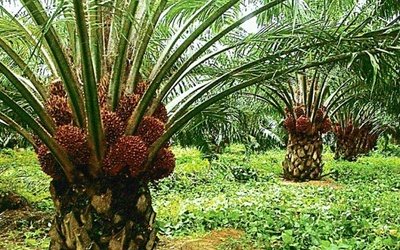
The production of palm oil is causing social and environmental problems worldwide. Both ENDS is working to make the sector fairer and more sustainable and is promoting alternatives for palm oil.
-
Dossier
Soy: trade in deforestation
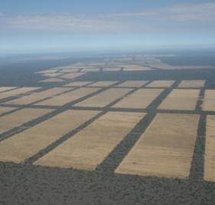
The rising demand for soy is having negative consequences for people and the environment in South America. Both ENDS reminds Dutch actors in the soy industry of their responsibilities and is working with partners on fair and sustainable alternatives.
-
Blog / 15 April 2024
The year of truth: EU Member States urged to combat deforestation
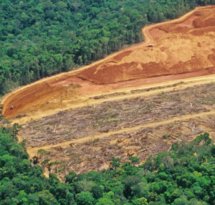
The EU is the world's largest "importer of deforestation," due to the huge volumes of unsustainably produced soy, timber, palm oil, and other raw materials that EU member states import. After many years of delay, the European Parliament and the European Council passed a law in December 2023 to address this problem: The EU Deforestation Regulation (EUDR). Both ENDS is part of a broad coalition of organizations that have been pushing for this European legislation. However, there is now a serious delay, and perhaps even postponement, of the law's implementation. Objections have been raised by a number of member states, who are sensitive to lobbying by certain business sectors and producer countries.
-
News / 13 December 2023
Response from Both ENDS and OxfamNovib to new FMO climate fund
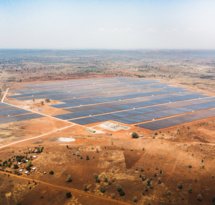
Both ENDS and Oxfam Novib welcome the new SDG Loan Fund launched by FMO. The fund aims to invest more than a billion euros in loans to small and medium-sized enterprises in low- and middle-income countries, in the energy, inclusive financial services and sustainable agriculture sectors. At the same time, both organisations are concerned about the impact of money from the fund on normal people in future recipient countries.
-
News / 6 November 2023
Response to FMO investments in Nicaragua
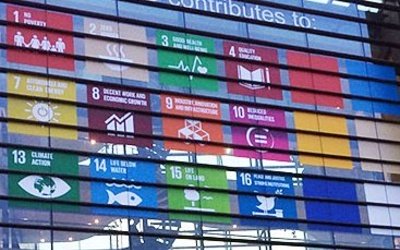
On 27 October, RTL Nieuws reported that the Steungroep Nicaragua considers the millions of euros that the Dutch development bank FMO is investing in Nicaragua irresponsible. When asked, FMO stated that 'it had to continue to support its entrepreneurs in difficult times'. Both ENDS believes that the choice to continue to invest in Nicaragua brings substantial risks, which FMO does not take sufficiently into account when deciding on financing. Previous FMO investments have caused harm to people and the environment and, in some cases, even led to violence – with, as its lowest point, the murder of Berta Cáceres in Honduras in 2016.
-
Publication / 30 October 2023
-
Publication / 16 October 2023
-
News / 18 September 2023
Empowering women for sustainable change in Liberia
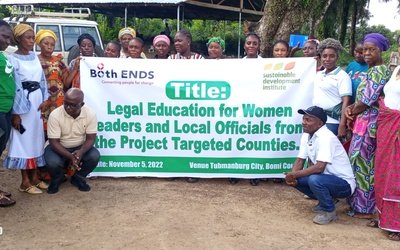
In the heart of Liberia, the Western Region Women Network Association (WERWONA) is scripting a story of resilience, advocacy, and transformation. This journey began in September 2022 when WERWONA, supported by Both ENDS's partner Sustainable Development Institute, embarked on a mission to empower women leaders and communities in Bomi, Grand Cape Mount, and Gbarpolu counties to reclaim their rights to land and natural resources. This shows how the partnership between Both ENDS and local organisations is driving positive change in Liberia.
-
Publication / 23 June 2023
-
Publication / 24 April 2023
-
Publication / 21 March 2023
-
Publication / 9 March 2023
-
Transformative Practice
Analog Forestry
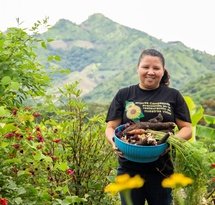
Analog forestry is a transformative approach to the ecological restoration of degraded lands. Natural forests are used as guides to create ecologically sustainable landscapes, which support the social and economical needs of local communities.
-
Letter / 18 October 2022
Letter to the EU to call for strong EU regulation on deforestation-free products
140+ organisations call on the European Ministers, Commissioners and members of the European Parliament to adopt a strong EU regulation on deforestation-free products. As "trilogue negotiations" on this law begin, we ask you to support a law that lives up to the promises of the European Green Deal and the Sustainable Development Goals and upholds the EU's commitments on climate, biodiversity and human rights.
-
Transformative Practice
Agroecology
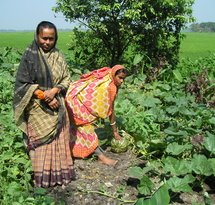
Agroecology is a diverse set of agricultural practices, a field of science and a social movement. It aims to transform food systems towards greater ecological sustainability, social justice, and resilience. Both ENDS and CSO-partners around the world support farmers and pastoralists practising agroecology, both on the ground and in gathering political and financial support.
-
Publication / 23 August 2022
-
Letter / 10 June 2022
Joint submission on FMO’s Position Statement on Financial Intermediaries
Both ENDS, SOMO, Oxfam Novib and Recourse sent in a submission to FMO's public consultation on its Position Statement on Financial Intermediaries. In this position statement, FMO only takes limited responsibility for the consequences of its investments through so-called financial intermediaries. We call upon FMO to publish a position statement that focuses on protecting human rights and the environment and take full responsibility for this.
-
News / 18 March 2022
International Forests Day: the importance of forests for livelihoods and a healthy environment
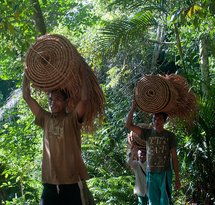
Today is International Day of Forests. An ever more important day, as the amount of forest and forested area's on this globe is shrinking at a fast pace. One the main causes is our ever increasing demand for products such as soy and palm oil from area's that have been deforested for their cultivation. The current proposed EU-deforestation law to prevent this, is not strict enough and does not include the protection of other crucial natural areas such as grasslands, savannas and swamps, as well as the human rights of the millions of people living in these area's. During these past few weeks we therefore participated in the campaign #Together4Forests, calling on citizens to send a letter to their own responsible ministers. The campaign paid off: almost 54,000 letters were sent to European ministers across the European Union, demanding a strict forest law that guarantees the import of only deforestation-free products in Europe.
To celebrate this International Day of Forests, we would like to emphasise the great value of forests and other natural areas, directly or indirectly, for the livelihoods of at least 2 billion people. Below, we selected some examples that show how, throughout the world, local communities use many different ways to collect and produce food and other natural products in a sustainable way, while protecting and restoring the forests and forested area's they are so dependent upon.
-
Blog / 18 February 2022
This is what a fair and sustainable Africa strategy looks like

Minister Liesje Schreinemacher for Foreign Trade and Development Cooperation recently made her first working visit, to Kenya and Uganda. With this visit, the minister made a flying start in honouring the pledge in the new government's coalition agreement to formulate a 'targeted Dutch Africa strategy'. Such a strategy is desperately needed as, too often, our foreign trade is conducted at the expense of people and the environment, including in countries in Africa. The new strategy presents a perfect opportunity to ensure that the 'trade and aid' agendas are closely aligned.
-
Publication / 15 February 2022



